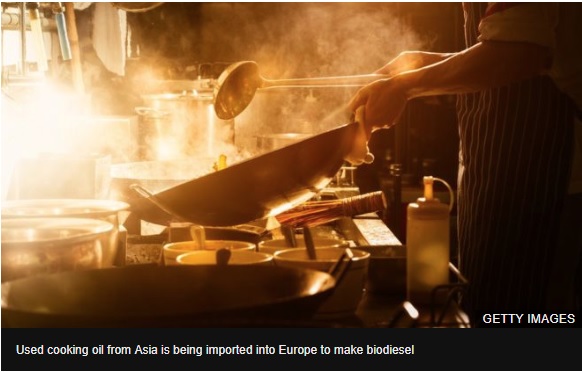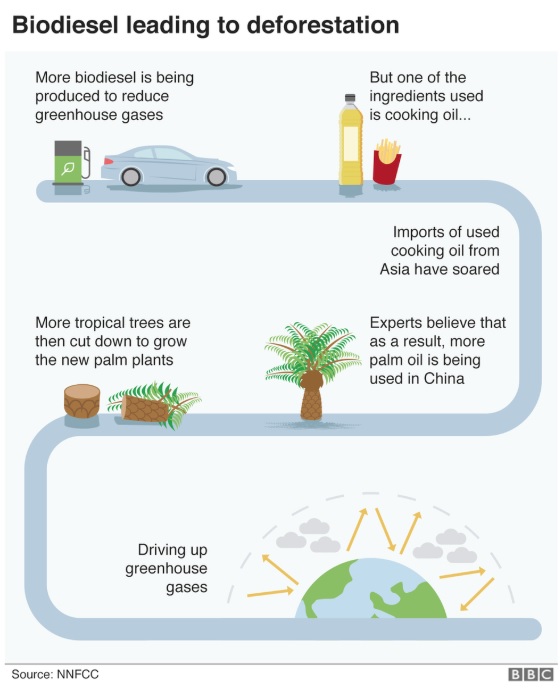
Imports of a "green fuel" source may be inadvertently increasing deforestation and the demand for new palm oil, a study says.
Experts say there has been a recent boom in the amount of used cooking oil imported into the UK from Asia.
This waste oil is the basis for biodiesel, which produces far less CO2 than fossil fuels in cars.
But this report is concerned that the used oil is being replaced across Asia with palm oil from deforested areas.
Cutting carbon emissions from transport has proved very difficult for governments all over the world. Many have given incentives to speed up the replacement of fossil-based petrol and diesel with fuels made from crops such as soya or rapeseed.
These growing plants absorb CO2 from the atmosphere and so liquid fuel made from these sources, while not carbon-neutral, is a big improvement on simply burning regular petrol or diesel.
In this light, used cooking (UCO) oil has become a key ingredient of biodiesel in the UK and the rest of Europe. Between 2011 and 2016 there was a 360% increase in use of used cooking oil as the basis for biodiesel.

Because UCO is classed as a waste product within the EU, UK fuel producers are given double carbon credits for using it in their fuels. This has sparked a boom in demand for used cooking oil that is so great it is being met in part with imports from Asia.
In the UK, the most common feedstock source of biodiesel between April and December 2018 was Chinese UCO, totalling 93 million litres. In the same period, used cooking oil from UK sources was used to produce 76 million litres of of fuel.
Now a new study, from international bioeconomy consultants NNFCC, suggests that these imports may inadvertently be making climate change worse by increasing deforestation and the demand for palm oil.
The problem arises because used cooking oil in some parts of Asia is not classed as a waste product and is considered safe for consumption by animals.
The report's authors are concerned that since it is more profitable to sell Asian UCO to Europe for fuel rather than feed it to animals, it is likely being replaced by virgin palm oil which is cheaper to buy.

